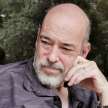The Secret to Long-Term Weight Loss
What the fitness and diet industries don’t want you to know

We’ve all heard the standard advice for losing weight: “Eat less and move more.” Dr. Jason Fung, author of “The Obesity Code,” refers to this advice as having “a perfect record unblemished by success.” Anyone who has tried to lose weight using this technique knows it doesn’t work long-term. Sure, you start to lose weight for a few weeks, and it feels great—worth the extra hunger pangs! Then, while pushing through the hunger and the desire to skip a day at the gym, your weight loss stalls. Soon after, ounces start coming back and become pounds—and before you know it, you are back to where you started six months earlier.
It’s so frustrating. But it’s what your doctor or nutritionist or fitness coach told you to do, so you think you must have just done something wrong. Well you did do something wrong—it’s just not what you think. What you did wrong was to listen to advice that doesn’t work.
Of course, we aren’t really in a position to know it’s the advice that’s bad. How many of us have studied human physiology? Well, guess what—your doctor, nutritionist and/or your fitness coach didn’t likely study human physiology, either. They are just repeating what they were told works. If they had studied human physiology, they would understand why “eat less/move more” never works and more importantly, they would know what does work for long-term weight loss.
Why Eat Less/Move More Never Works
It sounds elegant—to lose weight, all you need to do is to create a calorie deficit between what you eat and what you do all day.
The problem with the advice is that it is based on the assumption that changing the amount of energy going into the body (what we eat) is independent from the amount of energy going out of our body (movement and energy used to keep us going during the day). In other words, the advice of eat less/move more assumes that you can keep the energy out the same or higher even if you reduce the energy in. And this assumption simply isn’t true.
If you create a calorie deficit by some combination of reduced food intake or increased activity, your body counteracts the deficit you’ve imposed on it. Your body does this to make sure it doesn’t run out of energy; because if you run out of energy, you die. Your body doesn’t know how much you weigh, and it doesn’t care if you want to weigh less—your body evolved to make sure you don’t run out of energy (i.e., die).
Here’s the Secret
Without getting too deep into human physiology, when you look for the things in our body that actually generate the energy our cells use, we find ourselves looking at what are called mitochondria. Inside each mitochondrion is a little converter that takes nutrient energy and makes this stuff called ATP (Adenosine Triphosphate—so, yeah, ATP…). ATP is the chemical energy our cells use to do what they need to do. This conversion of nutrients into usable energy is the essence of metabolism!
When we eat a typical American-style diet, with lots of carbs, our mitochondria become very efficient—they make only enough ATP for our cells to do the work they need to do. And this holds true for all the types of cells we have, including our fat cells.
As a little aside, we all have thousands of fat cells distributed all over our body. Fat cells are unique in that they can get bigger or smaller depending on how much fat our body is trying to store. So, it’s not that fat people have more fat cells than thin people—it’s that the fat cells of a fat person have more fat inside each cell. There is also a lot of activity that goes on all the time inside fat cells—cleaning up damaged fatty acids, deconstructing and reconstructing different fat configurations, and so on. So, yes, fat cells have work going on inside them and need ATP to do this work.
When we eat a high-carb diet, the nutrient energy that is the basis for the ATP each mitochondrion is making comes from glucose. So we can say that glucose metabolism is very efficient.
What we need is a way to get our mitochondria to be inefficient. We need them to use up more nutrient energy than our cells need. It turns out that only one type of cell can become inefficient—our fat cells.
If we eat a diet low in carbohydrate, a few things happen. First, we will start using fat for energy. But our body takes the fat and converts it into glucose (this is done in the liver and is called gluconeogenesis). If we stay on a low-carb diet for several days, however, a different process starts. This other process is called ketogenesis. With ketogenesis, the liver takes our fat and produces something called ketone bodies—often referred to simply as ketones.
When the mitochondria within our fat cells start using ketones as the nutrient energy to make ATP, the process becomes very INefficient. In effect, our fat cells start to waste energy--all on their own. In effect, we have an energy deficit—but it’s one caused by our body, not one that is externally imposed on our body. This is why a low-carb diet is so effective at long-term weight loss—it takes advantage of how our bodies evolved when metabolizing ketones, instead of trying work against an evolutionary reaction to a calorie deficit.
One thing that seems crazy is: The chart that lists how many calories a person of my age, weight and height should be eating says I should eat 2025 calories per day. If I eat that many calories on a high-carb diet, I gain weight. When I switched to a low-carb diet, and just ate more protein and fat (I limited my carbs to 5% of my total calories) I lost weight--even though I was still eating 2025 calories a day. And I didn't just lose a little weight, I lost 175 pounds!
Thanks for reading! Here’s a modest request: If you use this information to lose weight, when you reach your weight-loss goal, look me up here on Vocal and give me a tip. Make the amount reflect how much weight you lost!
About the Creator
Steven Anthony
American author now living in Italy. My book, BE LEAN! Revealing the Long-Lost Secrets of Weight Management, is available on Amazon.






Comments
There are no comments for this story
Be the first to respond and start the conversation.